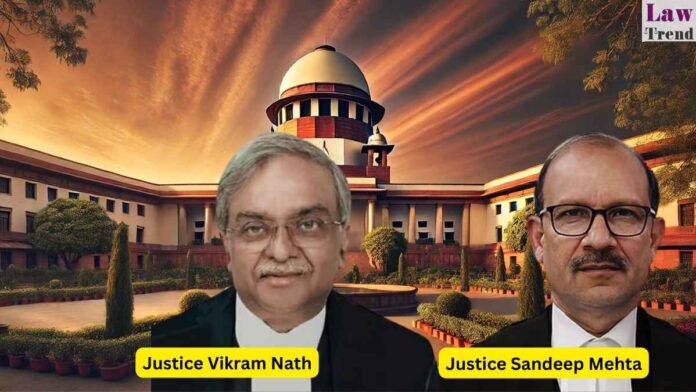The Supreme Court of India, through a bench comprising Justice Vikram Nath and Justice Sandeep Mehta, has held that exoneration in departmental proceedings does not automatically entitle an accused to a discharge in criminal proceedings, particularly in cases involving traps under the Prevention of Corruption Act, 1988 (PC Act). The Bench observed that the standards
To Read More Please Subscribe to VIP Membership for Unlimited Access to All the Articles, Download Available Copies of Judgments/Order, Acess to Central/State Bare Acts, Advertisement Free Content, Access to More than 4000 Legal Drafts( Readymade Editable Formats of Suits, Petitions, Writs, Legal Notices, Divorce Petitions, 138 Notices, Bail Applications etc.) in Hindi and English.




